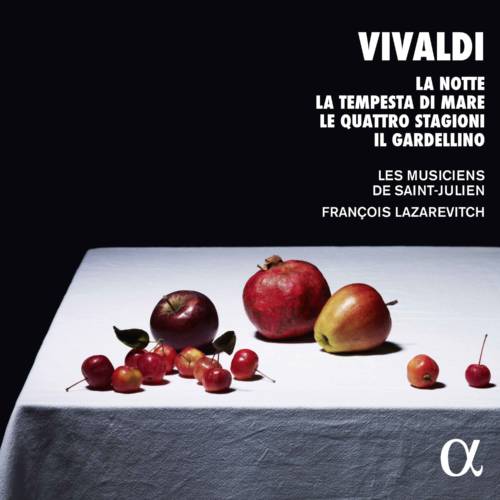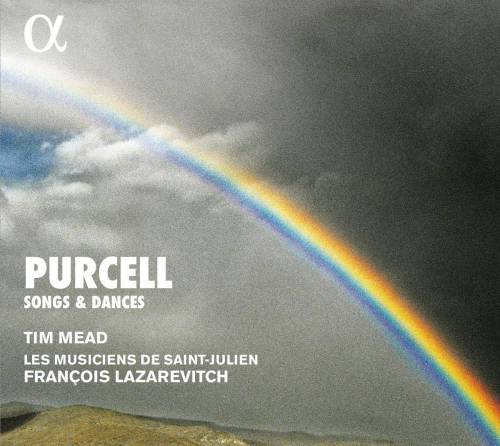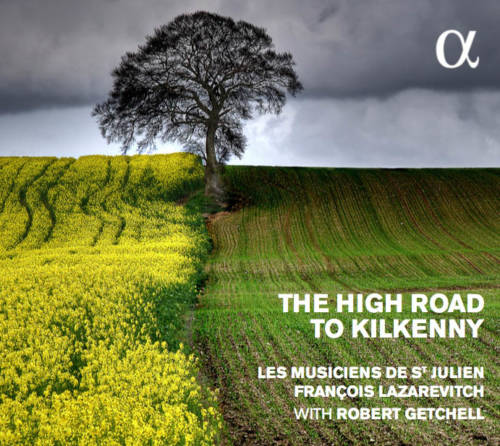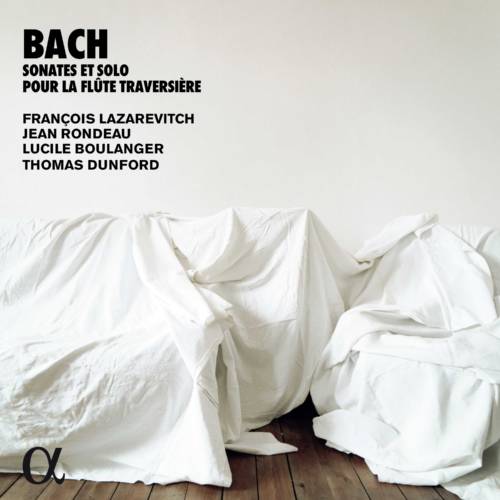8th Academy of Early Music
Monday, 7th to Sunday, 13th August 2023
Mortagne-Au-Perche
Presentation
The 8th Academy of Early Music of the Musiciens de Saint-Julien welcomes you once again for a week of work, meetings and immersion in Baroque music. It is dedicated to the work of Georg Philipp Telemann with a focus on the Polish style.
These influences date back to the years 1705-1708, period during which as a musician to Erdmann II von Promnitz he had the opportunity to travel to Upper Silesia. In his autobiography, he describes his enthusiasm for the ‘true barbaric beauty’ of Polish and Hanakian music, which he hears played on bagpipes and fiddles. These very typical melodies contributed to the colouring of his music, dressing them ‘in an Italian costume with alternating adagios and allegros’.
Trios, concertos and orchestral suites by this prolific composer will set the pace for this new educational event.
Choir and orchestra will come together to perform Telemann’s Ein feste Burg ist unser Gott and Gott der Hoffnung erfüllet euch, as well as Buxtehude’s Nun danket alle Gott.
Choral singing, transverse flute, recorder, oboe, bassoon, dulzian, violin, viola da gamba, harpsichord, lute, guitar and harp will be featured this year!
For instrumentalists, individual and group lessons in the morning, lectures at lunchtime, chamber music and thematic workshops in the afternoon will enable you to develop your practice and your understanding of baroque music.
Concerts, lectures and musical walks will be offered during this week of workshops, all opportunities to appreciate baroque music in the wake of the Musiciens de Saint-Julien.
Équipe pédagogique
Paul De Plinval : choral singing
François Lazarevitch : transverse flute
Elsa Frank : recorder, oboe
Jérémie Papasergio : bassoon, dulzian
Josef Zak : violin
Jérôme Hantaï : viola da gamba
Brice Sailly : harpsichord
Bérengère Sardin : harp, Feldenkrais method
Julie Pumir : chamber music workshop
***
Assistants
Arthur Fabe : choral singing
Clément Lefèvre : transverse flute
Simon Kalinowski, Paul Lecocq : harpsichord
Paul De Plinval
Choral singing
Après des études de formation musicale, écriture et analyse au CNSM de Paris, de piano au CRR de Versailles et de chant à Strasbourg et à Paris, Paul de Plinval obtient le CA de Formation musicale en 1983 puis celui de direction d’ensembles vocaux en 1993. Il a été formé en direction de chœur au Pays-Bas à La Haye et aussi par Pierre Cao et Frieder Bernius.
Il a enseigné la formation musicale et le chant choral aux Écoles Nationales de Musique d’Évry, Colmar, Créteil et du Val-Maubuée. De 1999 à 2004, il a dirigé le chœur de l’Armée française puis, de 2007 à 2012, le chœur de chambre de Paris. Il est régulièrement sollicité comme chef invité au chœur de chambre de Versailles, aux Cori Spezzati dirigé par Olivier Opdebeeck ainsi qu’à l’ensemble Monteverdi dirigé par Christophe Grapperon. Il se produit comme chanteur – contre-ténor – avec La Lorenzany.
Il enseigne le chant choral au CRR de Versailles.
Choir singing workshop
The vocal works proposed for the academy choir are related to the theme proposed for the instruments: they include two works by Georg Philipp Telemann and one by Dietrich Buxtehude. These pieces will be worked on and performed in the final concerts with a baroque orchestra formed by students from the Academy’s instrumental classes.
- Eine feste Burg ist unser Gott – G.F Telemann
www.cpdl.org/wiki/images/a/a1/Ws-twv8-7.pdf - Gott der Hoffnung erfülle euch – G.F Telemann
www.cpdl.org/wiki/images/1/19/Gott_der_Hoffnung_-_Telemann.pdf - Nun danket alle Gott – D . Buxtehude Carus Verlag 36.016/03
Prix: 14,60€
The physical preparation of the singer (posture, breathing, muscular relaxation) will be accompanied by in-depth vocal work in connection with the works on the programme. For those who wish, more individualized sessions in small ensembles will also be offered from the pieces from Telemann’s Biblische Sprüche.
Prerequisites
Choristers are required to have experience in choral singing as well as a minimum of musical knowledge that allows them to be at ease with a score.
François Lazarevitch
transverse flûte
Directeur artistique des Musiciens de Saint-Julien, François Lazarevitch a notamment enregistré les sonates pour flûte de JS Bach et CPE Bach, des concertos de Vivaldi, les Fantaisies de Telemann et les variations de van Eyck (Alpha Classics, Choc Classica).
Titulaire du CA de musique ancienne et du DE de musique traditionnelle, il enseigne la flûte traversière baroque, la flûte à bec, la musette baroque et l’ornementation au Conservatoire de Versailles. François Lazarevitch est chevalier de l’ordre des Arts et des Lettres.
Baroque transverse flute lessons
With Georg Philipp Telemann the flutist is spoilt for choice. This will be an opportunity to return to the Fantasies for solo flute, his sonatas (including the Sonates Méthodiques) and his duets.It will be interesting to compare this repertoire with some popular melodies from the Uhrovska manuscript (Slovakia 1730).
We will also devote time to the flute ensemble, mainly on arrangements of pieces by Telemann.All of this is not exclusive and if time permits we will be able to tackle other German works or works in different styles.
Technical work will focus on posture, sound treatment, variety of articulations, ornamentation (invention and expression).
I will be assisted by Clément Lefèvre who will provide additional coaching and will propose to those who are interested, a moment reserved for the Renaissance flute consort on dances and other polyphonic pieces (pitch 440 Hz).
Elsa Frank
recorder, oboe
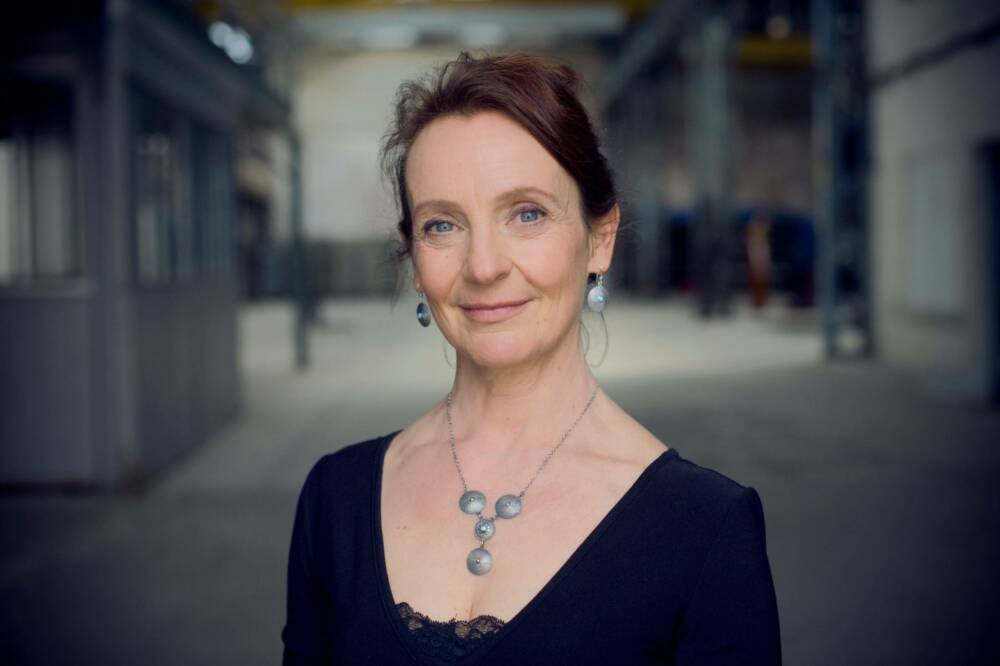
Elsa Frank joue de nombreux instruments à vent et parcourt le monde au sein de divers ensembles de premier plan. Elle enseigne la flûte à bec et le hautbois baroque au CRR de Caen et se consacre à des recherches organologiques concernant les instruments à anches doubles de la renaissance jusqu’à la période romantique (hautbois, bassons et autres tournebouts). Elle a participé à des dizaines d’enregistrements.
Recorder and oboe lessons
On recorder and oboe, we will explore Telemann’s wide-ranging repertoire: fantasias, chamber sonatas, methodical sonatas, trios, quartets and concertos.Staying on topic will allow us to rediscover Bohemian composers such as Finger and Zelenka, also in oboe band.
Prerequisites
Open to oboe and recorder players with a minimum of 3 years practice.
At the attention of oboists
Provide for your reed bill material (loan of instrument possible for modern oboists after consultation with Elsa). Flute consort sessions on the German repertoire of the 15th, 16th and 17th centuries.
Possibility to addressing about renaissance reed instruments (on request). A set of renaissance flutes (Kynseker model) as well as a set of Bob Marvin flutes can be provided for the more advanced students.
Jérémie Papasergio
bassoon, dulzian
Passionné d’instruments à vent, Jérémie Papasergio joue les bassons anciens, serpents, flûtes à bec, bombardes renaissance et flageolets. Il se produit avec les ensembles Doulce Mémoire, Le Poème harmonique et Le Concert Spirituel, et enregistre en musique de chambre et en orchestre.
Titulaire du CA de musique ancienne, Jérémie enseigne aux CRR de Paris, au CRR 93 Aubervilliers – La Courneuve, au conservatoire de Tours et au Pôle supérieur de Boulogne.
Bassoon lessons
We will focus on Telemann’s repertoire, as well as the original pieces for solo bassoon, as well as the methodical Fantasias and Sonatas, as well as trios and quartets, multi-part concertos mentioning this instrument.Depending on the possibilities, we will reconstruct a wind band at 415 Hz.
With the dulzian, we will feature at least two emblematic composers active in Poland such as Selma y Salaverde and Adam Jarzebsky.
On prior request, it will also be possible to create a 440 Hz renaissance ensemble with tournebouts, flutes, chalemies and cervelats.
Prérequisites
All levels accepted, loan of instrument possible after consultation with Jérémie.
Sonata in F Minor, TWV 41:f1: II. Allegro
Josef Zak
violin, viola & moravian traditional music workshop
Josef Zak prend part à de nombreux projets de musique ancienne.
En tant que violon solo, il travaille avec Les Musiciens de Saint-Julien (François Lazarevitch), Les Epopées (Stéphane Fuget), Collegium 1704, Orchestre de l’Opéra Royal de Versailles, PRJCT Amsterdam (Maarten Engeltjes), Czech Ensemble Baroque (Roman Valek).
Avec son ensemble Castelkorn il se dédie à la musique du 17e s. des pays d’Europe Centrale (Bohême et Moravie), et enregistre le CD « Lamentevole », consacré à des sonates pour violon de Biber et ses contemporains (label Eloquentia). Il a également dirigé le Chœur Grégorien de Paris de 2014 à 2019.
Violin and viola lessons
I will enthusiastically welcome violinists already specialists or who wish to deepen their knowledge of Baroque music.
Thanks to pieces for solo or accompanied violin of Telemann and his contemporaries, we will address two main topics:
- the interpretation of dances, focusing on the use of the bow, which is our means of expression and deserves particular attention, especially in the area of articulation and rhythm;
- the expression of the stylus fantasticus, a compositional style developed in the seventeenth century and which Telemann – as well as J.S. Bach – still uses in his Fantasias.
In contrast to dance, this style offers great freedom of tempo, however, it requires to the performer to have a thorough knowledge of the harmonic structure of the composition.
I will be happy to work in various formations with or without basso continuo, and will offer suites of German dances (music preserved in the Kromeriz Music Fund in Moravia).
Proposed repertoire
Partitions : G.P. Telemann : 6 sonatines pour violon et clavecin
Partitions : G.P. Telemann : 6 sonates à violon seul accompagné par le clavecin
Partitions : G.P. Telemann : 12 fantaisies pour violon sans accompagnement
Everyone can also bring a work adapted to their taste and level.
Jérôme Hantaï
viola da gamba, consort
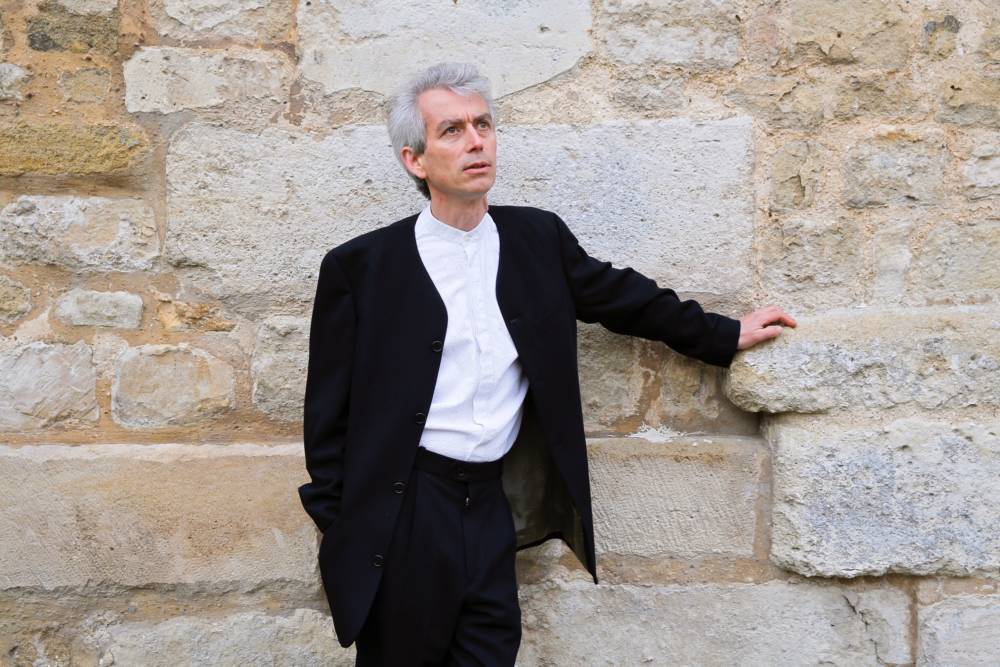
Jérôme Hantaï enseigne la viole au CRR de Cergy-Pontoise. Il consacre une grande partie de son temps à l’enseignement, ainsi qu’à la musique de chambre : il fait partie du Trio Hantaï avec ses frères Marc et Pierre, forme avec Alessandro Moccia et Alix Verzier le Trio Almaviva, anime l’ensemble de violes Spes Nostra et accompagne des chanteurs…
Sa discographie comprend des Sonates et Trios avec piano de Joseph Haydn aussi bien que des Pièces de viole de Marin Marais et de la musique de la Renaissance anglaise.
Viola da gamba and consort lessons
Twelve recently rediscovered fantasy for viola da gamba complete the already rich oeuvre of Georg Philipp Telemann for our instrument.This session of the Academy will therefore be an opportunity to revisit it in the light of the publications of the German violist-composers of the 18th century.
Proposed repertoire
Fantasy by Telemann, sonatas, trios with flute or violin, suite with orchestra, Sonata ò partite by Kühnel, Scherzi musicali by Schenck…
Brice Sailly
Harpsichord
Brice Sailly se produit en soliste et en ensemble avec différentes formations, dont Artaserse (Philippe Jaroussky), Les Ombres (Margaux Blanchard et Sylvain Sartre), Pulcinella (Ophélie Gaillard), Le Banquet Céleste (Damien Guillon), Les Musiciens de Saint-Julien (François Lazarevitch). Ses enregistrements pour le label Ricercar ont été salués par la critique (Diapason d’or, choc de classica…). Titulaire su CA, Il enseigne au CRR de Saint-Maur-des-Fossés.
Harpsichord lessons
The repertoire, which is in keeping with this year’s theme, will take us tour of Europe’s of nations and allow us to visit the Goûts Réunis under the aegis of Telemann’s little known work.We will work in particular on the French and Italian imprints in the Germanic harpsichord repertoire, focusing on the link between gesture, rhythmic structure and vocality. The basso-continuo will be approached through its theoretical sources which we will put to the test of ensemble playing.
Harpsichord and basso-continuo lessons are open to all, subject to the teacher’s agreement.
Bérengère Sardin
Harp, basso continuo & Feldenkrais method
Bérengère Sardin se produit en tant que soliste et au sein des formations de musique de chambre, dans un répertoire allant du Moyen-Âge à l’époque Baroque. Elle se produit régulièrement avec Doulce Mémoire (D. Raisin-Dadre), Les Musiciens de Saint-Julien (F. Lazarevitch), le Caravansérail (B. Cuiller), Artaserse (Ph. Jaroussky), Pulcinella (Ô. Gaillard), Tasto Solo (G. Perez).
Elle enseigne la basse continue et l’interprétation de la musique ancienne au conservatoire Supérieur du Pays basque Musikene (San Sebastián, Espagne). Elle se forme actuellement à la méthode FeldenkraisTM, pratique corporelle de prise de conscience par le mouvement et enseigne en groupe en tant qu’« étudiante autorisée. »
Early harp and basso continuo lessons
This course is intended for all harpists wishing to learn or improve their skills on early harps. The solo repertoire as well as the practice of basso-continuo will be approached in relation to the Telemann theme while leaving room for other repertoires according to the needs of each student.
Group instrumental practice workshops
Chamber music | by all teachers
Each student will work on a piece of chamber music with one of the teachers. They will also have the opportunity to join independent groups.
In addition to the stylistic work, the objective will be to develop:
- his understanding of musical discourse, his speed of analysis
- his own instinct
- his availability, his constant attention
- his ability to listen to his partners and anticipate their needs…
…then find technical solutions to adapt and thrive within a group…
Moravian traditional music workshop | Josef Zak
During his stay in Central Europe, Telemann was seduced by the music of the Western Slavs and drew inspiration from it for his own compositions. In the Moravian folk music workshop I will introduce you to the basic elements of Moravian folk singing, the rhythmic style of the accompaniment and the diversity of the melodic line.
The workshop will take the form of rote playing, so as to remain true to the oral tradition.
Group sessions of the Feldenkrais Method | Bérengère Sardin
Invented by Moshe Feldenkrais in the 1950s, this global method of somatic education is based on awareness through movement: by exploring the perception of the body and the movement patterns specific to each of us, this method invites us to refine and improve the use of our movements to make them more efficient and harmonious.
Carried out in group sessions, the Awareness Through Movement (AMM) lessons are guided verbally by the practitioner, giving everyone the opportunity to learn by themselves. They highlight simple movements often related to daily life, adapted to all types of public whatever their physical condition and without any pre-requisite.
In the context of artistic practice, it helps to reinforce awareness of the synergy involved in the implementation of the musical gesture, in relation to the expressive intention. It can also help to prevent or reduce discomfort related to the intensity and demands of instrumental practice.
Thus, it also encourages the enrichment of the imagination, creativity and stage presence.
Bring a soft, comfortable garment and a thick foam mat (yoga type). Duration of each session: 1 hour.
Prerequisites
Level & prerequisites
The Academy is aimed at experienced practitioners of postgraduate and professional level. Second cycle students are accepted according to their personal project and their motivation. Beginners are accepted in lute, theorbo, baroque guitar, harp and harpsichord.
In all cases, your registration is subject to validation by the teacher.
Pitch: 415 Hz (except for Renaissance ensembles at 440 Hz).
Repertoire will be offered to participants.
Trainees may bring works that they wish to work on. They are encouraged to prepare their repertoire in advance.
Musical events
7 to 13 August
OPENING CONCERT
Monday, 7th August at 8.45 pm | Church of Notre Dame in Mortagne-au-Perche
Telemann and German baroque musique
by Les Musiciens de Saint-Julien
CYCLE OF 3 CONFERENCES
Tuesday, 08th August at 12h15 pm | Village hall in Mortagne-au-Perche
The Feldenkrais method applied to the musician
by Bérengère Sardin
Wednesday, 9th August at 12.15 pm | Village hall in Mortagne-au-Perche
Georg Philipp Telemann, child prodigy
by Elsa Frank
Thursday, 10th August at 12.15 pm | Village hall in Mortagne-au-Perche
Rubato and rhythmic “freedom”
By François Lazarevitch
CONCLUDING CONCERT
Saturday, 12th August in the morning | Mortagne-au-Perche town centre
Baroques Impromptus by the trainees of the Académie
Event organised in partnership with the Tourist Office of Mortagne-au-Perche
Saturday, 12th August at 8.45 pm | Church of Notre Dame in Mortagne-au-Perche
Concerts of the trainees
Choral singing & instruments
by the trainees of the Académie
Sunday, 13th August at 11 am | Church of Notre-Dame d’Autheuil
Telemann in duo, flute and harpsichord
with Clément Lefèvre and Simon Kalinowski
Event organised in partnership with Le P’tit Festival d’Autheuil
Booking and information: autheuilpatrimoine@gmail.com
Sunday, 13th August at 3 pm | Church of Notre Dame in Mortagne-au-Perche
Concluding concert
Choral singing & instruments
by the trainees of the Académie
Information
By email : academie@lesmusiciensdesaintjulien.fr
By telephone : +33 (0)9 81 18 57 45
Musical walk : registration with the Mortagne-au-Perche Tourist Office on 02 33 83 34 37
Sunday morning concert in Autheuil: to be confirmed
In practice
The Academy of Ancient Music takes place in Mortagne-au-Perche, in the heart of the Parc Régional du Perche. Classes take place at the Maison Familiale et Rurale de Mortagne-au-Perche, at the Maison paroissiale and in the premises of the Bignon school.
How the course is run
Monday, 7th August
Reception of the trainees
-singers: from 1pm to 2pm
-instrumentalists: from 5pm to 7pm
All students are invited to the opening concert of the Academy after the meal.
Classes start :
Monday, 7th August at 2.30 pm: choral singing
Tuesday, 8th August at 9.30am: instruments
The trainees will perform:
Saturday, 12th August at 5pm: instrumentalists
Saturday, 12th August at 8.45pm: singers and instrumentalists
Sunday, 13th August at 3pm: singers and instrumentalists
End of the course
Sunday, 13th August after the concert around 5.30 pm
Course location
The course takes place in various locations in Mortagne-au-Perche :
at the Maison Familiale et Rurale
at the Maison paroissiale
in the Salle Jeanne d’Arc of the Bignon school
in the chapel of the Bignon school
in the premises of the primary school of the Bignon school
in the living room of Madame Colette Regnard
Accommodation and meals
Students are accommodated in single, double or triple rooms depending on age, availability and room size at the Maison Familiale et Rurale, with a shared bathroom for two rooms.
Beds are equipped with a mattress protector and a blanket.
Trainees are required to bring :
• sheets (sheet, fitted sheet for single bed)
• their pillow
• their bath towel
• toiletries (soap, shampoo, toothbrush, etc.)
Meals are prepared by the MFR (normal or vegetarian meals).
Access to the MFR of Mortagne-au-Perche
The MFR is located at 50 rue des Quinze Fusillés in Mortagne-au-Perche.
By car: from Paris by the A12, the N12 and then the D912 (2h20).
By public transport: from Paris Montparnasse station to L’Aigle (1h30), then by bus (1h).
Think of carpooling!
Rates
Training fees* :
Instrumentists (6 days) : 421 € incl.**
Singers (6 days) : 292 € incl.**
*This fee includes access to the opening concert.
**A discount of 30 € will be granted to the following trainees (subject to supporting documents):
– people who come as a family, 2 or more;
– minors ;
– students;
– job seekers.
Accommodation – full board: 313 € incl.
This package includes 6 nights with breakfast and 12 meals.
Accommodation is in double or triple rooms depending on the size of the rooms. For a single room, please contact us.
Possibility to leave on the morning of August 14th: 27 € per extra night.
Annual membership fee to the association: 18 € incl.
To participate in this course, membership of the Académie des Musiciens de Saint-Julien is required.
Registrations until 16 July 2023
A deposit of 200 € will be required to validate your registration.
Registration
Registration: form to be completed before 16 July 2023.
Your registration is subject to validation by the teacher.
Fiche sanitaire – stagiaires mineurs
For all information
Telephone : +33 (0)9 81 18 57 45
Email: academie@lesmusiciensdesaintjulien.fr
Postal Adress:
L’Académie des Musiciens de Saint-Julien 86 rue Lesueur, 76600 Le Havre
Thanks
L’Académie des Musiciens de Saint-Julien remercie pour son soutien la Caisse des Dépôts, le Département de l’Orne, la Communauté de communes de Mortagne-au-Perche, la Ville de Mortagne-au-Perche, l’Office du tourisme de Mortagne-au-Perche, la Maison Familiale et Rurale de Mortagne-au-Perche, l’Ensemble scolaire Bignon, la Paroisse Sainte-Céronne, l’Atelier Marc Ducornet, le Conservatoire Arthur Honegger, l’Université de Rouen.
